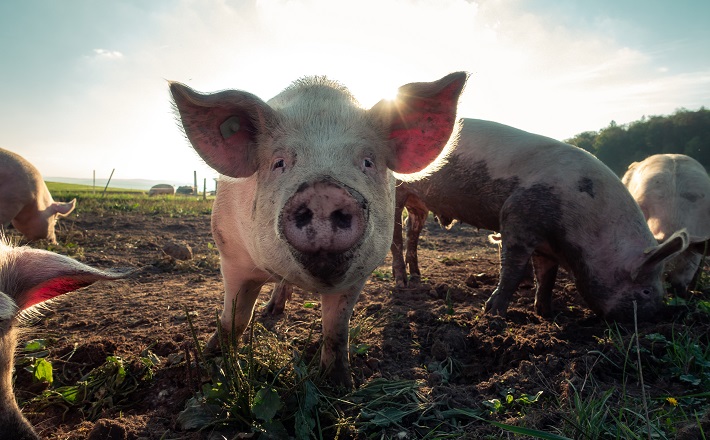Commentary on 1 Kings 19:1-4 [5-7] 8-15a
This chapter is well represented in the lectionary, and provides a stark contrast with the immediately previous one, when Elijah had his dramatic, public showdown with the prophets of Baal.
Here, we see Elijah’s internal struggle, his fears and doubts, and his private withdrawal into the wilderness. But this chapter is not only about the prophet. It is also about the God who meets Elijah and responds to him in the particulars of his situation: providing for his needs, and ultimately redirecting him.
The first verse reviews the excitement of 1 Kings 18, with Ahab’s report to Jezebel that Elijah killed all her prophets with the sword. Jezebel’s response is to send a messenger to Elijah with a death threat that she vows will be fulfilled in one day. Elijah is afraid,1 and fleeing for his life, he goes to Beersheba. 1 Kings 19:3 reminds us that Beersheba is under Judah’s control, which means that legally, it is beyond Jezebel’s reach. Elijah does not stop there, instead going beyond, another day, into the wilderness. He is safe, geographically, in the land where Jezebel does not rule. He is also safe temporally, because Jezebel’s death threat was supposed to be fulfilled by this time. Elijah’s words and actions, however, belie any sense of relief or safety. He sits under a large desert bush (NRSV and NIV: “broom tree”) and asks to die, telling God, “It is too much; now, Lord, take away my life, for I am no better than my ancestors” (1 Kings 19:4).
The “ancestors” have been explained in at least two ways: one, as his dead ancestors, whom he wishes to join in death. Second, the “ancestors” are those in the prophetic vocation, specifically Moses,2 who also complained in the wilderness and asked the Lord if he could die (Numbers 11:14-15).
While we can surmise from verse 8 that Elijah’s request to die is not answered, verses 5-7 contain an important divine response to Elijah: sending an angel and provisions of food, specifically a “cake baked on coals, and a jar of water” (verse 6). The Hebrew word used for coals (resapim) only appears here and in Isaiah 6:6, referring to the coal that touched Isaiah’s lips to purify him. The word used for jar (sapphat) is another uncommon one, but occurred in 1 Kings 17:12-16 to refer to the jar of oil belonging to the widow of Zarephath. Because of God’s provision, that jar miraculously remained full of food for Elijah and the widow during the drought. Thus, the provisions point to another prophet who felt unworthy, and God’s sustenance through times of lack.
The angel explains the reason why Elijah must eat, “because the way is too much for you” (1 Kings 19:7). The Hebrew points us back to Elijah’s complaint in verse 4 that it was “too much” (rab). Elijah is not released from what lies ahead, but after being provided for, he is sent on a way that is also rab for him (verse 7).
Elijah goes “in the strength of that food forty days and forty nights” (verse 8) to Mt. Horeb, where he then enters “the” cave to spend the night (verse 9). The definite article in Hebrew suggests that this was the same cave in which Moses was sheltered when the glory of the Lord passed by (Exodus 33:22). That connection is strengthened by God’s words to Elijah in verse 11, “the LORD is about to pass by.”
Before that happens, God asks Elijah what he is doing there (verse 9). Elijah eventually gets to the direct answer, that others are seeking his life (verse 10). Strangely, Elijah does not identify Jezebel, only saying that the death threats are from the Israelites. Elijah’s complaint contains other inconsistencies, such as his statement that the Israelites had slain the prophets; that, too, was done by Jezebel (1 Kings 18:4). Technically, Elijah was not the only one left; Obadiah had rescued a hundred other prophets (1 Kings 18:4, 13). And though Elijah had asked to die just verses earlier, he now seems upset at the thought of losing his life.
Instead of systematically refuting Elijah, God announces God’s presence which ultimately comes not in the wind, earthquake, or fire, but in the “sound of fine silence” (1 Kings 19:12), variously translated as “gentle whisper” (NIV), “sound of sheer silence” (NRSV), and “still small voice” (KJV).
When Elijah hears this sound, he wraps his face in his mantle, ostensibly to protect himself before going out of the cave to encounter God. Again, his previous desire to die seems now forgotten. God then repeats the previous question, “what are you doing here?” Elijah answers by repeating verbatim his previous complaint, suggesting that Elijah did not understand God’s theophany, God’s self-revelation. A direct encounter with God does not automatically result in a change of mind or a change of perspective.
So God redirects Elijah, commanding him, “Go, return on your way to the wilderness of Damascus” (1 Kings 19:15). Damascus is in the north, the opposite direction from the southerly journey Elijah has been travelling throughout this pericope. There, Elijah will anoint new leaders — Hazael and Jehu — to replace those mentioned at the beginning of the chapter. He will also anoint his own successor, Elisha, choosing him at the end of the chapter beyond this lectionary text. God will continue to work in Israel after Elijah is gone; God does not depend on Elijah. But Elijah matters to God, as is evident in all the ways throughout the chapter that God provides for and communicates with him.
Notes:
1 Or, he “sees.” The Hebrew words are similar; “fear” is yr?, while “see” is r?h, and various manuscripts attest to each. Iain Provan explains that it can be understood as Elijah “sees how things are.” 1 and 2 Kings. New International Biblical Commentary (Peabody, MA: Hendrickson Publishers, 1995), 144.
2 Choon-Leong Seow, “1 Kings.” New Interpreters Bible Volume III (Nashville: Abingdon, 1999), 140.


June 23, 2019